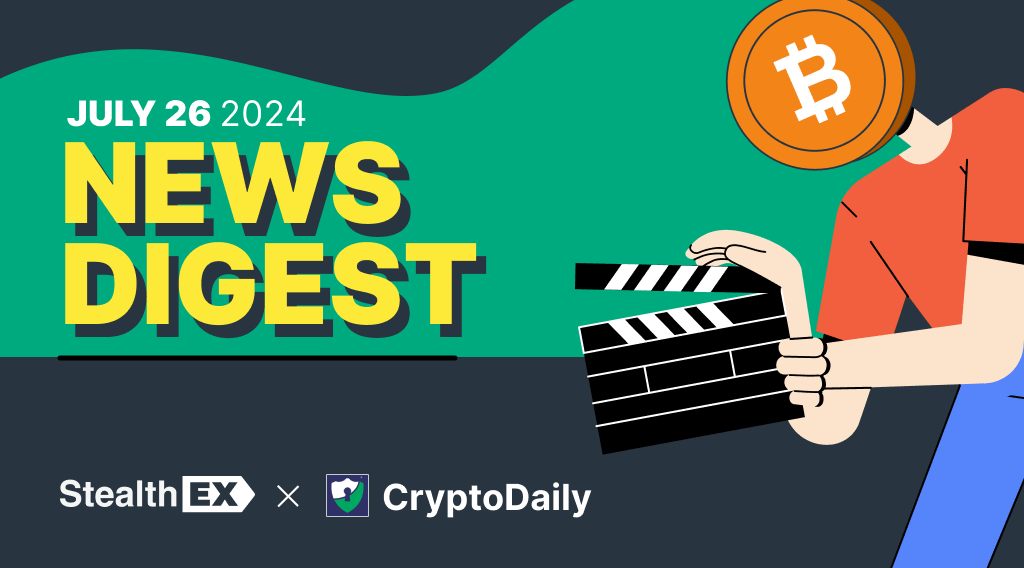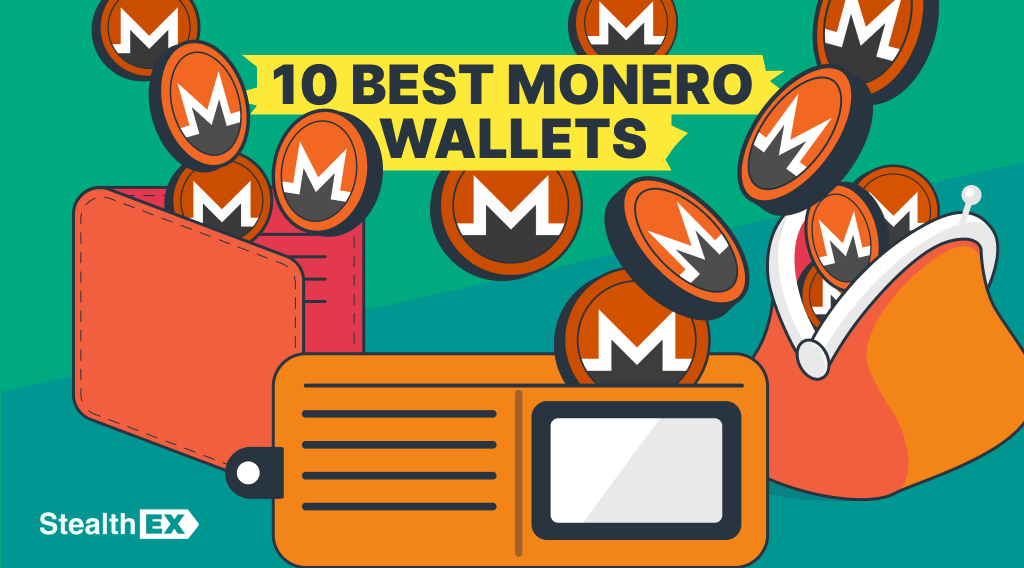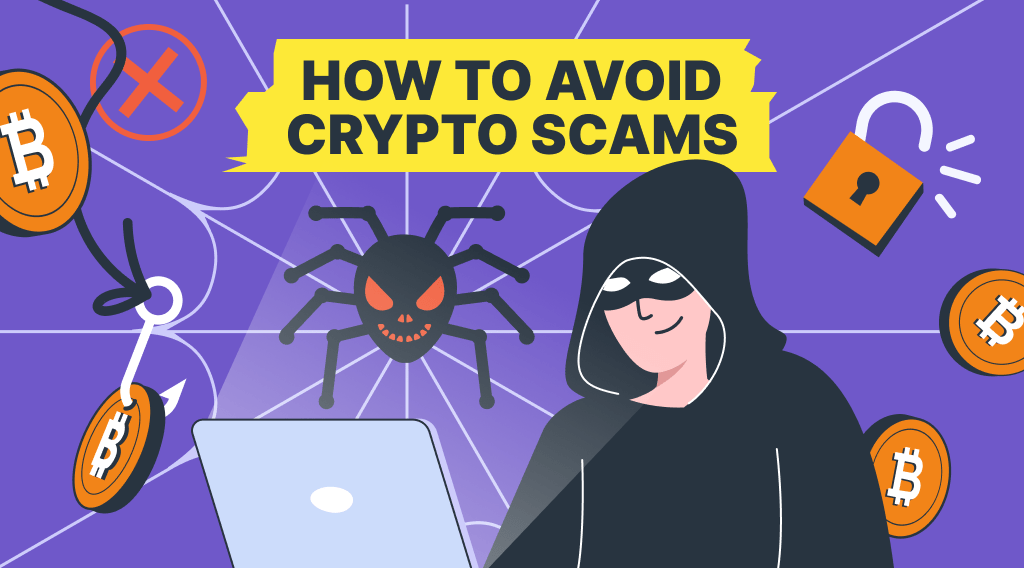Crypto News Roundup: MonoSwap Hack, dYdX Attack, Ethereum ETFs

Stay updated with StealthEX and CryptoDaily! This week, we bring you the most exciting news in the crypto universe. Want to know what’s trending? Our comprehensive digest provides fresh perspectives, detailed insights, and the latest happenings in the crypto world. Stay in the loop with our in-depth coverage, and don’t miss out on any of the newest developments and events shaping the future of cryptocurrency!

Article contents
- 1 MonoSwap Faces Major Hack: Users Urged to Withdraw Funds Immediately
- 2 dYdX v3 Website Hacked: Users Warned to Avoid Platform
- 3 Marathon Digital Holdings Fined $138 Million for Breach
- 4 COTI to Join Bank of Israel’s Digital Shekel Challenge
- 5 Ethereum Spot ETFs Begin Trading Following SEC Approval
- 6 BlockFi to Start Distributing Crypto Assets to Clients via Coinbase in July 2024
MonoSwap Faces Major Hack: Users Urged to Withdraw Funds Immediately
MonoSwap, a decentralized exchange and staking platform, has been hacked. The company advised users to stop staking and depositing funds immediately. They urged everyone to withdraw their funds to avoid potential losses.
The hack was linked to a suspicious link in a social media post. MonoSwap revealed that one of their developers accidentally installed a phishing app. This occurred during a call with scammers who pretended to be venture capitalists. The attackers managed to install malicious software on the developer’s computer.
The compromised computer had access to MonoSwap’s wallets and contracts. The hackers withdrew a large amount of staked liquidity, causing significant damage to the platform. MonoSwap is investigating the incident and is committed to rebuilding and securing the platform.
The company expressed their commitment to resolving the issue and announced plans to improve the platform’s security. They are working diligently to understand the attack and prevent future incidents.
Bobby Ong, founder and Chief Operating Officer of CoinGecko, highlighted a rise in crypto hacks. He noted the sudden increase is due to Google’s sale of its domain business to SquareSpace. This transition removed two-factor authentication for many domains, creating security gaps that hackers are exploiting. Ong urged users to be cautious when dealing with crypto-related websites.
dYdX v3 Website Hacked: Users Warned to Avoid Platform
Decentralized cryptocurrency exchange dYdX revealed that an attacker compromised one of its on-chain trading services. The hacker installed a token-draining program on the dYdX v3 official website.
Reports surfaced about the issue after dYdX v3 was listed for sale. dYdX quickly clarified that traders’ funds were safe since the attack targeted only the web domain, not the underlying smart contracts. They urged users to avoid the domain and any suspicious links, ensuring that dYdX v4 remains unaffected.
In a message, dYdX advised against visiting the website or clicking any links until further notice. They assured users that the warning does not apply to dYdX v4. On Discord, dYdX explained that the attacker had taken control of the v3 domain and created a fake website. This fraudulent site prompted users to approve a PERMIT2 transaction, which stole their tokens upon connecting their wallets.
Choose StealthEX for Exchange and Buy Crypto
- User-Friendly — Simple and minimalistic interface for everyone.
- Fast and Private — Instant non-custodial cryptocurrency exchanges.
- Buy crypto with Credit Card.
- 1500+ coins and tokens are available for limitless, quick and easy exchanges.
- NO-KYC crypto exchanges — Buy cryptocurrency up to $700 without KYC!
- StealthEX crypto exchange app — Process crypto swaps at the best rates wherever you are.
- 24/7 Customer Support.
Earn from Each Exchange by Joining StealthEX Affiliate Program.
Become a partner right now and use affiliate tools:
- Public API — Earn from your wallet, aggregator, or exchange terminal.
- Referral Links — Recommend StealthEX to your audience.
- Exchange Widget — Built crypto exchange widget on any page of your website.
- Button — A perfect choice for traffic monetization.
- Banner — Track conversion and stats right in the personal cabinet.
Marathon Digital Holdings Fined $138 Million for Breach
Marathon Digital Holdings faces a hefty $138 million fine for violating a non-disclosure and non-circumvention agreement. The company was found guilty of using a proprietary growth strategy without compensating its developer, Michael Ho.
Michael Ho, co-founder of US Bitcoin Corp and chief strategy officer at Hut 8, accused Marathon Digital of exploiting a strategy he created in 2020. This strategy aimed at building a large-scale Bitcoin mining facility in North America. Ho had an agreement with Marathon in 2020, which allowed him to share proprietary information about a crucial energy supplier for Marathon’s operations. The agreement clearly stated Marathon would not bypass Ho to engage directly with the supplier without proper compensation.
Court documents revealed that Marathon executed Ho’s strategy without offering him any remuneration for his proprietary information. The lawsuit highlighted this breach, leading to the significant fine.
David Affeld of Affeld England & Johnson LLP and Gregg Zucker of Foundation Law Group LLP represented Ho. They emphasized the importance of respecting contractual commitments. Affeld noted that the unanimous jury verdict vindicated Ho’s efforts and expertise.
This verdict underscores the necessity of ethical practices and honoring professional relationships in the business world. It serves as a reminder that contractual obligations must be respected.
COTI to Join Bank of Israel’s Digital Shekel Challenge
COTI, a Layer 2 privacy blockchain, has been invited to join the Digital Shekel Challenge, initiated by the Bank of Israel. This project aims to develop a national digital currency. Notably, COTI is the only blockchain company participating.
COTI’s Layer 2 technology supports financial transactions without exposing sensitive data. This makes it an ideal candidate to address the complexities of implementing a Central Bank Digital Currency (CBDC).
The Digital Shekel Challenge has approved 14 teams to participate. These teams will tackle various challenges associated with creating a digital shekel. Experts in fintech, privacy, and networking will work on developing practical use cases. They will also determine the best methods for deploying a digital shekel.
This comprehensive project requires solutions for onboarding, wallet creation, and payments. It must balance transparency and privacy. The challenge starts in August and will last for several weeks. By late October, participating projects will present their use cases to the Bank of Israel.
Ethereum Spot ETFs Begin Trading Following SEC Approval
Ethereum spot ETFs have started trading on major exchanges after receiving the green light from the SEC. This development opens new doors for Ethereum investment.
Spot Ether ETFs were approved by the US Securities & Exchange Commission (SEC). The S-1 registrations were finalized, enabling these ETFs to be listed on major stock exchanges like Nasdaq, NYSE, and CBOE.
Bloomberg ETF analyst Eric Balchunas confirmed the news on Monday evening, stating, “Spot ETH ETFs have been approved by the SEC. The final step has been completed, setting the stage for tomorrow’s launch.”
This milestone is significant for Ethereum and the wider cryptocurrency market. Grayscale’s Ethereum Trust (ETHE) will now be publicly traded, and the company’s Ethereum Mini Trust (ETH) will make its debut.
Other prominent asset managers like Franklin Templeton, Vaneck, Bitwise, 21Shares, BlackRock, Invesco, and Fidelity will also launch their spot Ether ETFs. These funds offer investors a fresh opportunity to tap into Ethereum’s potential.
The new Ethereum ETFs will feature competitive base fees ranging from 0.15% to 0.25%. Some issuers, including Fidelity, 21Shares, Bitwise, Franklin Templeton, and VanEck, will waive fees for a limited time or until their products reach a certain asset threshold. Grayscale’s Ethereum Mini Trust will waive fees for the first six months or until it amasses $2 billion in net assets.
BlockFi to Start Distributing Crypto Assets to Clients via Coinbase in July 2024
Starting in July 2024, BlockFi will distribute crypto assets to eligible customers through Coinbase. These distributions will be processed in batches, and notifications will be sent to registered email addresses.
BlockFi, a bankrupt crypto lender, announced this news on X.com. The distributions will be handled in batches over the coming months. Clients eligible for these distributions will receive email notifications. However, non-US clients cannot receive funds now due to regulatory requirements.
BlockFi’s troubles began in November 2022, following the collapse of the FTX exchange. BlockFi filed for Chapter 11 bankruptcy on November 28, 2022, shortly after stopping withdrawals. Since then, the company has been navigating the court process to enable customer withdrawals.
In September 2023, creditors approved BlockFi’s bankruptcy restructuring plan. Early in 2024, BlockFi settled with the estates of FTX and Alameda Research for nearly $1 billion, moving closer to customer recovery.
Coinbase revealed on its website that it has collaborated with BlockFi International’s Joint Liquidators to ensure the distribution process for non-US clients. All stakeholders must confirm requirements to facilitate fund distributions to non-US clients.
Distributions will start in July 2024 for eligible customers who didn’t receive their funds before BlockFi’s systems shut down. BlockFi will send an email notification about fund receipt. Coinbase will attempt weekly to monthly crypto asset distributions while the program is active, provided the Creditor has an eligible Coinbase account.
This article is not supposed to provide financial advice. Digital assets are risky. Be sure to do your own research and consult your financial advisor before investing.
Bitcoin crypto world cryptocurrency CryptoDaily EthereumRecent Articles on Cryptocurrency
 Best Monero Wallets: How to Safely Store XMR?
Best Monero Wallets: How to Safely Store XMR?  Understanding and Avoiding Crypto Scams: A Comprehensive Guide
Understanding and Avoiding Crypto Scams: A Comprehensive Guide 